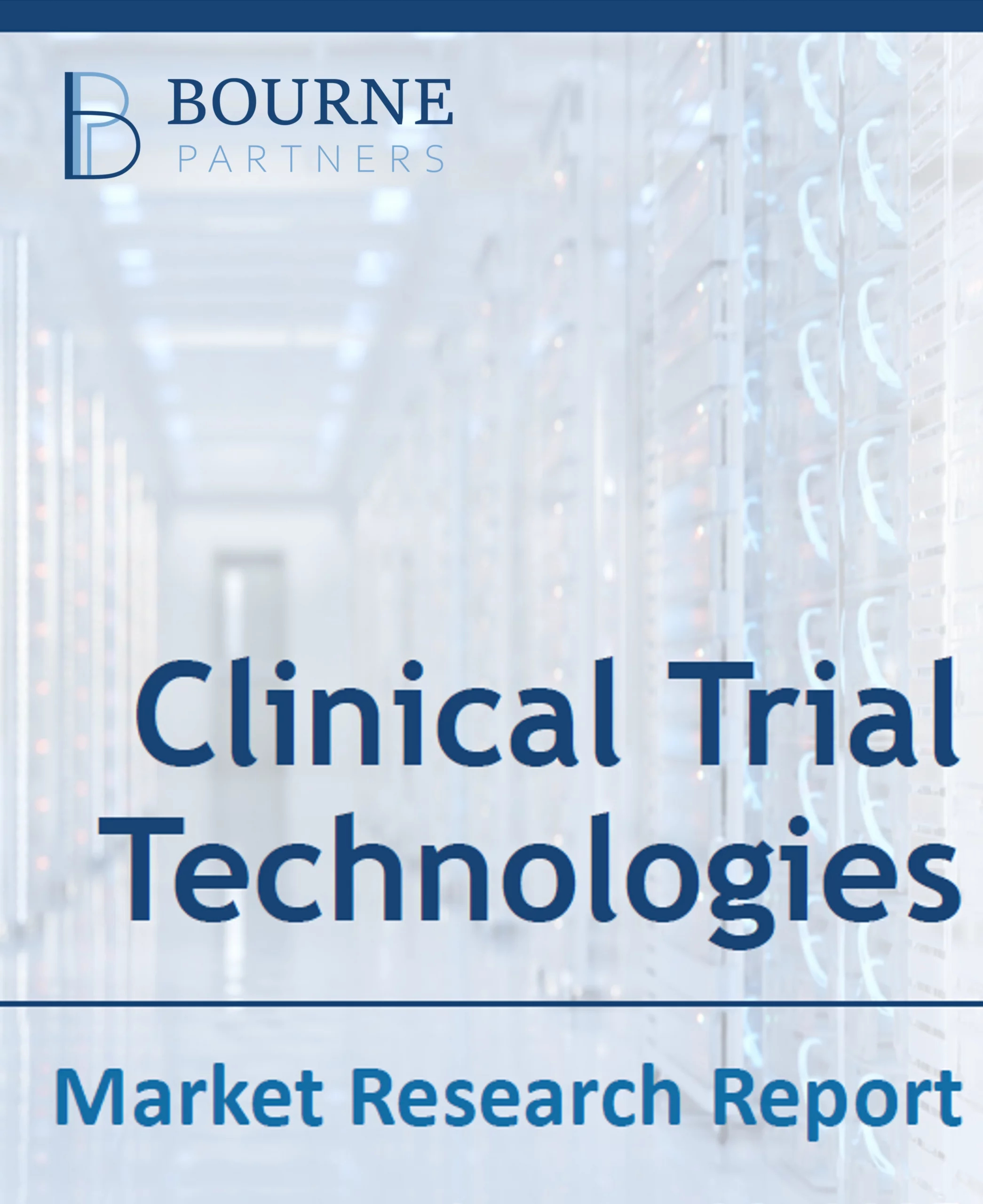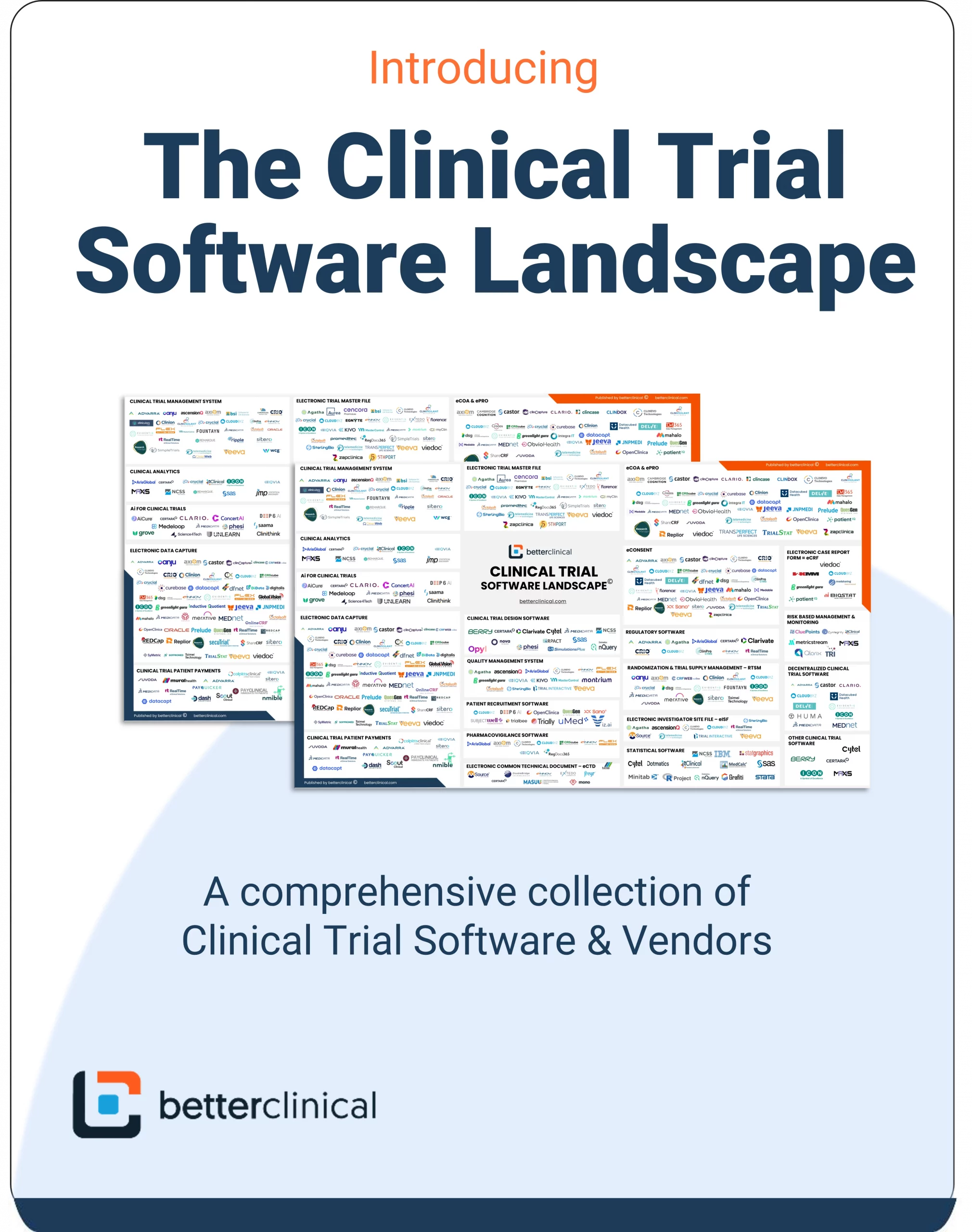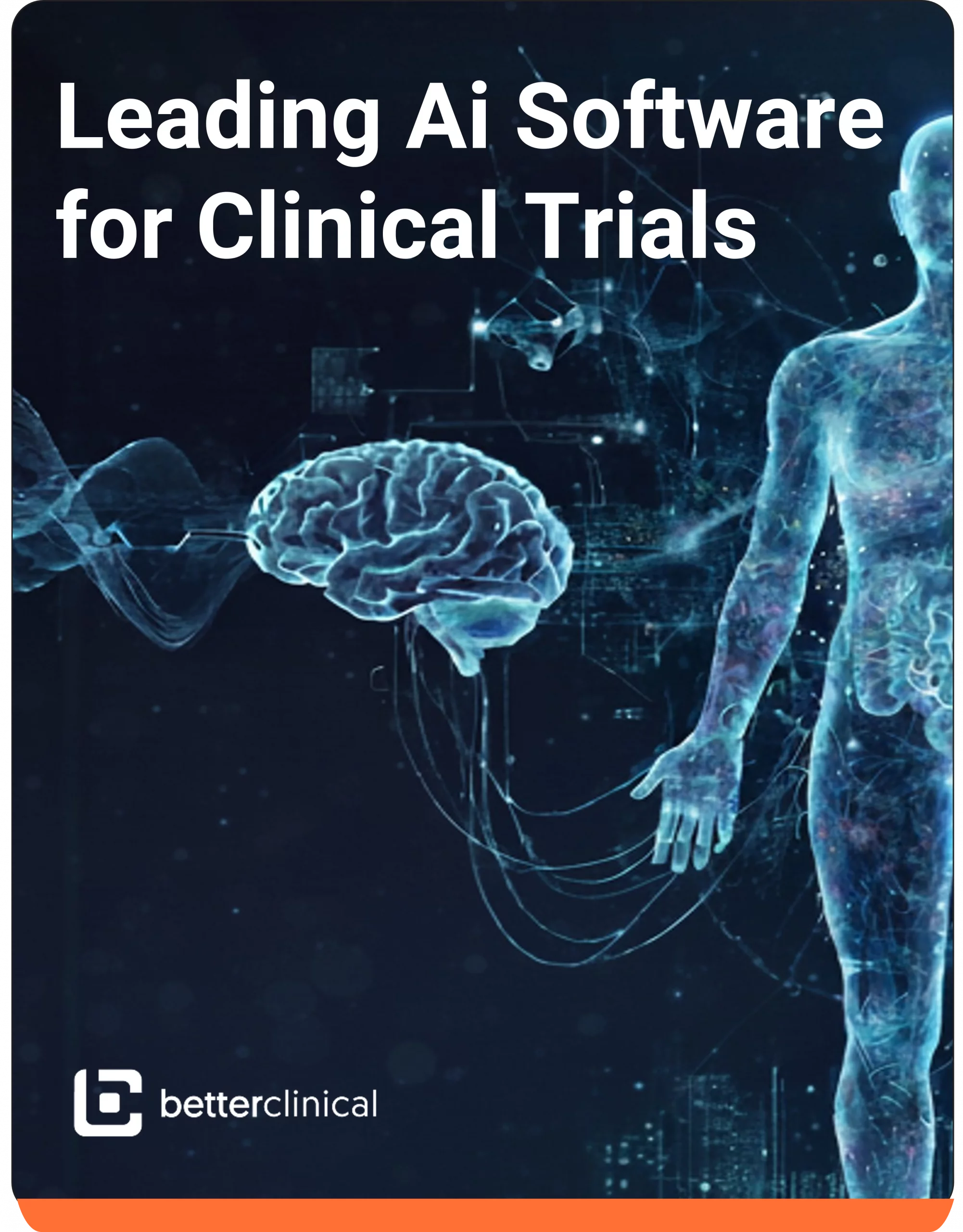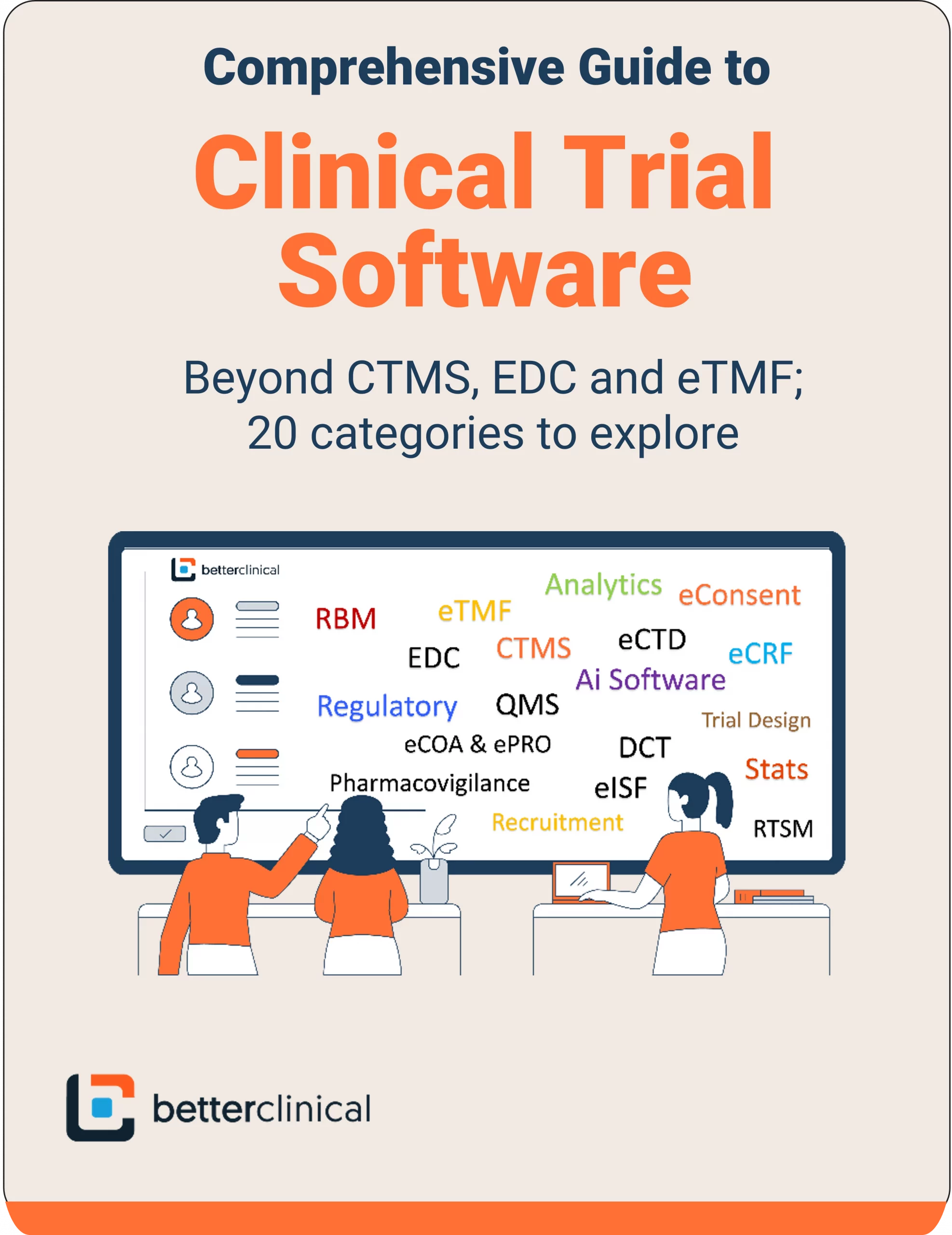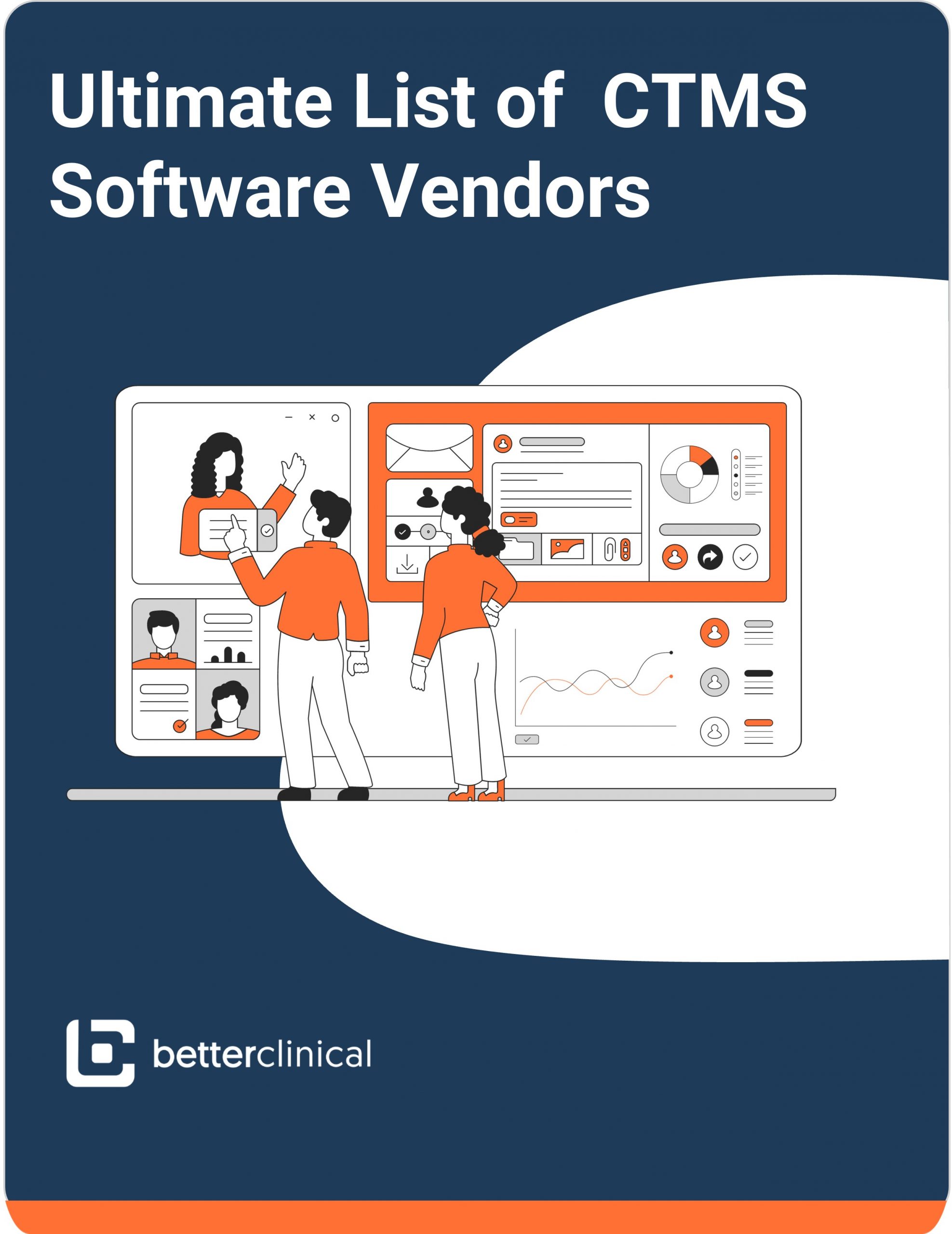We reviewed the Market Research Report from Bourne Partners on the use of Clinical Trial Software Technologies.
The following is a summary of the report and below is the link where you can download the complete report. Their analysis is based mostly on the investment opportunity of the sector.
Highlights
1.) The biopharma market remains hugely attractive for software vendors. Breakthroughs in molecular biology are opening new doors for drug development. Meanwhile, pharmaceutical companies are racing to find new revenue sources; over $180 billion in sales face patent expirations through 2030. It’s a massive market with urgent needs, perfect conditions for innovative tech solutions.
2.) Clinical trials are getting more complex and that’s creating opportunities. Between cutting-edge science, new types of therapies, precision medicine, and the push to measure “quality of life” outcomes, there’s a lot more to manage. The average Phase III trial now generates 3.6 million data points, seven times more than in 2005. This explosion in complexity is pushing drug sponsors, research organizations, and trial sites to adopt unified tech platforms that can handle the load and ensure data quality.
3.) New guidelines are changing how trials are designed. Updates to ICH E6 guidelines are putting “quality-by-design” and “risk-based monitoring” front and center. The practical effect? Drug sponsors and research organizations will start bringing in tech vendors earlier in the planning process instead of trying to retrofit technology after the protocol is already set. This shift elevates software vendors from service providers to true strategic partners in drug development.
4.) The regulatory winds are shifting in favor of innovation. A second Trump administration is expected to take a lighter touch on AI regulation, especially with venture capitalist David Sacks serving as the White House “A.I. Czar.” This pro-innovation stance is great news for clinical trial software companies. We’re also likely to see a more merger-friendly environment compared to recent years, which should accelerate industry consolidation.
5.) Integrated platforms are winning and commanding premium valuations. When everyone works from a single, real-time dataset, you eliminate the errors that come from re-entering data or connecting incompatible systems. The result? Lower administrative costs, better decisions, and faster time-to-market. Investors are taking notice, consistently valuing platform vendors higher than point-solution providers.
Software technologies highlighted in the report:
Clinical Trial Management System (CTMS). They consider CTMS as the core of the clinical trial tech stack.
Electronic Data Capture (EDC). Adoption of EDC software is near 100% with three top vendors representing about two-thirds of
the market.
Randomization and Trial Supply Management (RTSM). The report considers RTSM software to be essential to support complex protocols
and the use of adaptive study designs, which are often used in oncology, rare diseases, and other medically challenging areas.
Risk-Based (Remote) Monitoring. About half of all clinical trials include at least one element of a risk-based monitoring program,
and the report expects this to significantly increase in the coming years as protocols become more complex and data intensive.
Study Feasibility and Patient Recruitment. Software applications are increasingly necessary for clinical trial feasibility analysis, i.e.,
to identify target niche patient populations and sites as well as to generally predict the practicality of a study protocol.
eConsent. The report shows that poor
clinical trial patient retention is often mainly due to the patient not having a full understanding of what is expected of him/her. eConsent applications can help with this.
ePRO/eCOA. ePRO software allows participants to self-report data from the convenience of their homes without having to manage physical forms or physically visit trial sites.
Clinical Trial Payment Systems. Compensating clinical trial patients appropriately is critical to patient retention and data quality. The need for clinical trial payments and patient logistics software has increased significantly due to inflationary pressures.
Pharmacovigilance (Safety). The report shows increasing use case for pharmacovigilance software applications as a result of the rising therapeutic complexity of many of the new experimental precision medicines coming to market.
Information Technology Outsourcing. Ongoing shortages in skilled labor will compel pharma companies to look to outsourcing
partners, particularly in newer areas such as generative artificial intelligence and large language models
For a deeper understanding of their research into the Clinical Trial Software sector, download their full report.
Bourne Partners: With over 25 years of proven success, Bourne Partners is a leading investment banking firm focused on healthcare and pharmaceuticals.

